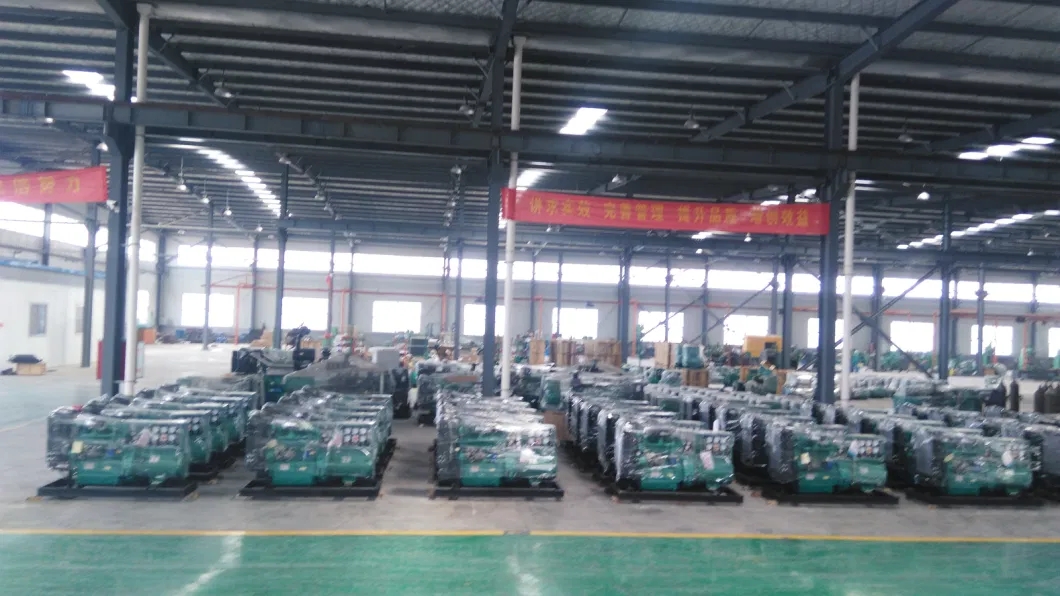Introduction
In today's fast-paced world, where uninterrupted power supply is crucial for businesses, industries, and households, load management plays a vital role in ensuring a reliable and stable power system. One of the key components of load management is the use of diesel generators to provide backup power during outages or peak demand periods. Diesel generators have been a popular choice for load management due to their efficiency, reliability, and cost-effectiveness. This article will explore the role of diesel generators in load management, their benefits, and key considerations for selecting and operating these essential power backup systems.
Overview of Diesel Generators
Diesel generators are a type of internal combustion engine that converts diesel fuel into electrical energy. I thought about this consist of a diesel engine, an alternator, a fuel tank, a cooling system, and a control panel. The diesel engine drives the alternator, which generates electricity through electromagnetic induction. The generated power can then be used to supply electrical loads directly or stored in batteries for later use.
Diesel generators are available in various sizes and configurations to suit different load requirements. They can range from small portable units for residential use to large industrial generators capable of powering entire facilities. The power output of a diesel generator is measured in kilowatts (kW) or megawatts (MW), indicating the amount of electrical energy it can produce.
Benefits of Diesel Generators for Load Management
1. Reliability: Diesel generators are known for their reliability and durability. They can operate continuously for long periods without experiencing significant wear and tear, making them ideal for providing backup power during extended outages. Diesel engines are robust and can withstand high temperatures, making them suitable for harsh operating conditions.
2. Fuel Efficiency: Diesel generators are more fuel-efficient compared to gasoline generators, as diesel fuel has a higher energy density. This means that diesel generators can produce more power per unit of fuel consumed, resulting in lower operating costs and longer run times between refueling.

3. Cost-Effectiveness: While the initial cost of purchasing a diesel generator may be higher than other types of generators, the overall cost of ownership is lower due to lower fuel consumption and maintenance requirements. Diesel fuel is also more readily available and cost-effective than other fuels, making diesel generators a cost-effective choice for load management.
4. Quick Start-Up: Diesel generators can start and reach full power output within seconds, making them suitable for providing emergency backup power during sudden outages or peak demand periods. This quick response time ensures minimal disruption to operations and helps prevent downtime.
5. Longevity: Diesel generators have a longer lifespan compared to other types of generators, with proper maintenance and regular servicing. The robust design of diesel engines and components ensures reliable performance over many years, providing a long-term solution for load management needs.
6. Load Flexibility: Diesel generators can be easily scaled to meet varying load requirements, making them suitable for both standby power applications and prime power generation. They can be used to support critical loads during outages or as the primary power source for remote locations where grid power is unavailable.
Key Considerations for Selecting a Diesel Generator
1. Power Requirements: The first step in selecting a diesel generator is to determine the power requirements of the loads it will be supporting. This involves calculating the total power consumption of all connected devices and appliances to ensure the generator can meet the demand.
2. Size and Capacity: Diesel generators come in various sizes and capacities, so it is essential to choose a generator that can handle the required load without being overloaded. Oversizing or undersizing a generator can lead to inefficiencies, increased fuel consumption, or equipment damage.
3. Fuel Efficiency: Consider the fuel efficiency of the diesel generator, as this will impact operating costs and overall performance. Look for generators with high energy efficiency ratings and low fuel consumption to maximize cost savings.
4. Noise Level: Diesel generators can be noisy during operation, so it is important to consider the noise level produced by the generator. Choose a generator with soundproofing features or opt for a quieter model if noise is a concern, especially in residential areas or quiet environments.
5. Emissions Compliance: Check the emissions standards and regulations in your region to ensure the diesel generator complies with environmental requirements. Look for generators that are certified to meet emission standards and have features to reduce harmful emissions.
6. Maintenance Requirements: Regular maintenance is essential to keep a diesel generator running smoothly and efficiently. Consider the maintenance requirements of the generator, including servicing intervals, spare parts availability, and technical support from the manufacturer or supplier.
7. Warranty and Support: Choose a diesel generator from a reputable manufacturer or supplier that offers warranty coverage and reliable customer support. Having access to technical assistance, spare parts, and service technicians can help prevent downtime and ensure the generator operates optimally.
Conclusion
Diesel generators play a crucial role in load management by providing reliable backup power during outages, peak demand periods, or off-grid applications. Their efficiency, reliability, and cost-effectiveness make them a popular choice for businesses, industries, and households seeking a dependable power backup solution. By considering key factors such as power requirements, size, fuel efficiency, emissions compliance, and maintenance needs, users can select the right diesel generator to meet their load management needs effectively. With proper planning and maintenance, diesel generators can ensure uninterrupted power supply and peace of mind for users facing power challenges.
